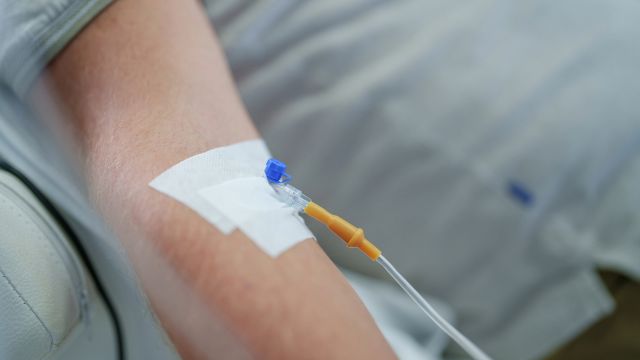Updated on June 27, 2024.
Immunodeficiency refers to any condition where the body’s immune system is unable to effectively protect the body from infections or other diseases. Primary immunodeficiency (PI) refers to a group of conditions where immunodeficiency is the main characteristic of the disease. These conditions are also known as primary immunodeficiency disorders (PIDDs) and inborn errors of immunity (IEIs). There are many different types—over 450.
PI is caused by genetic abnormalities. In many cases, these abnormalities are inherited, passed on through the genetics of a person’s biological parents. Some occur spontaneously, meaning a genetic change occurs on its own.
When a person has PI, some part of the immune system does not function correctly—for example, the body may not be able to produce antibodies or white blood cells that are capable of fighting infections. People with PI are more susceptible to infections, and more susceptible to infections that are severe, do not completely go away with treatment, and recur after treatment. They may also be more susceptible to unusual or uncommon infections, certain types of cancer, and damage to organs.
How is PI treated?
Treatment for PI will depend on the specific disorder a person is diagnosed with, and if you or a loved one is living with PI, your best source of information will be a healthcare provider. The first step to successfully treating or managing any form of PI is an accurate diagnosis.
Some examples of treatment and management options for PI that you may discuss with a healthcare provider:
Antibiotic, antivirals & antifungal medications
Treating any existing or persistent infections is the first step in treatment. This can include medications that treat bacterial, viral, or fungal infections. In some cases, a medication may be prescribed to prevent an infection.
Additionally, any person with PI should take precautions to prevent infections, such as hygiene and handwashing, avoiding crowded places when possible, and staying up to date on recommended vaccinations. Good nutrition, exercise, managing stress, and adequate sleep also support immune health.
Immunoglobulin replacement therapy
Immunoglobulin is a pooled solution of antibodies collected from healthy plasma donors. Infusions can be given intravenously (into a vein) or subcutaneously (under the skin). For a person with PI, this can improve how the immune system functions.
Hematopoietic stem cell transplantation (HSCT)
This is a potential cure for PI, but the procedure is physically and mentally demanding and it requires a matching donor. The procedure involves collecting hematopoietic stem cells from the bone marrow of a donor. Hematopoietic stem cells are immature cells that divide and then grow into different types of blood cells. These cells will be transplanted into the bone marrow of the person being treated. Prior to transplantation, that recipient will be given chemotherapy to prepare the body to receive the new stem cells.
Gene therapy
Research into new ways to treat PI is ongoing. One promising treatment is gene therapy. Gene therapy involves collecting immature stem cells from the bone marrow of the person being treated for PI. New DNA is then introduced into the collected stem cells to correct the genetic mutation causing the PI. The corrected stem cells are then reintroduced into the person being treated, where they will hopefully replicate into healthy immune cells.
Gene therapy is not widely available for the treatment of PI, but it may be worth learning more about and discussing with a healthcare team.







